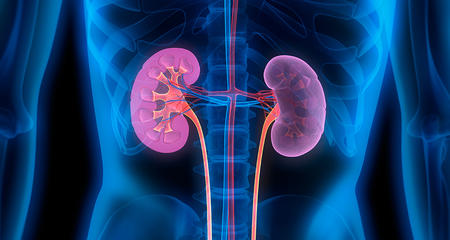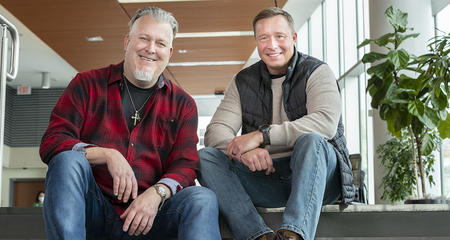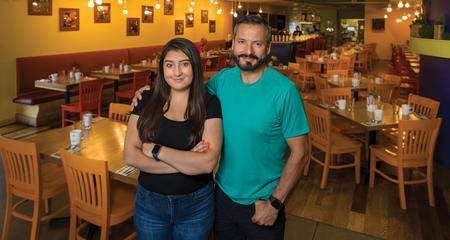As Froedtert Hospital strives to make transplant an option for all patient candidates, our Living Kidney Donor Program helps meet the critical need for organs. It also offers the expertise in live donor patient care that makes the experience a “win-win” for donors and recipients.
A living kidney donation is possible when a living person donates a kidney to someone who needs a transplant. The kidney remaining in the donor is able to adequately remove waste from the body. Single kidney donation is the most often performed live donor procedure and is occurring more frequently due to the growing need for kidneys for transplantation. Donors do not need to be biologically related to the recipient in order to donate.
It only takes a few simple steps to learn more about becoming a living kidney transplant donor.
Kidney Transplant Patient Flyer
Living Kidney Donors Increase Transplant Options
When a living donor match is secured for a transplant candidate, the candidate can be removed from the waiting list for a deceased donor kidney. This subsequently shortens the wait list time for another candidate. If a candidate is not a match but is still willing to donate, our participation in kidney exchange programs through the National Kidney Registry (NKR) and the United Network for Organ Sharing (UNOS) provides a pool of donors across the country. NKR orchestrates more exchange transplants than any other exchange program in the world. UNOS is a private, non-profit entity that works under contract with the federal government to manage the country’s organ transplant system.
What can living kidney donors expect before, during and after donating a kidney?
Experts in Living Kidney Donor Care
Decades of kidney surgery excellence make Froedtert Hospital a recognized leader in offering kidney transplant donors outstanding outcomes, exceptional care and life-long post-procedure care. Dedicated transplant coordinators walk donors through every step related to donation and stay close to them following donation to support their recovery.
All donation surgeries at Froedtert Hospital are performed laparoscopically - without a major incision - which means quicker recovery and minimal scarring for donors. Experts in kidney donor care are involved before, during and after surgery, and donors are cared for on a hospital unit dedicated to transplant patients. Learn more about the kidney donor experience.
Living Donation Improves Kidney Transplant Success Rates
The ten-year graft (organ) survival rate for kidneys received through living donation is 15 percent higher than kidneys received from a deceased donor, according to the U.S. Organ Procurement and Transplantation Network (OPTN) and the Scientific Registry of Transplant Recipients (SRTR). There are many reasons a living kidney donation enhances outcomes and is the preferred approach to kidney transplantation.
- Optimal health for donor and recipient – Living donor transplants can be carefully planned so the recipient and donor are in the best possible health.
- Living donors are evaluated according to strict guidelines, and donors with potential medical problems are not accepted.
- Kidneys removed from living donors are in excellent condition and are immediately transplanted, which minimizes possible damage to the organ.
- Living donor transplantation can be performed “pre-emptively” - before the transplant candidate’s condition worsens and requires dialysis - which can take its toll on the candidate’ health and affect outcomes.
- Less chance of rejection – Testing prior to surgery ensures that the donor’s kidney will be a more compatible match for the recipient and less vulnerable to rejection.
- Emotional motivation for self-care after transplant – Recipients often bond emotionally with their donor knowing that an enormous sacrifice was made for them. This has been shown to motivate recipients to take better care of themselves after they have a transplant.
Who Can be a Living Kidney Donor?
Many people may think they are not healthy enough to donate a kidney, that it is not within their financial means or that they must be related to the recipient. Live donors are carefully screened. They undergo extensive testing to ensure it is medically and psychologically safe for them to donate a kidney. As for financial concerns, the recipient’s insurance carrier pays for the donor’s evaluation, hospitalization, surgery and follow-up care. Kidney donation is safe and well-regulated. Donors do not need to be related to the recipient, but can be close friends or part of an exchange or chain of donors.
Recognized as High Performing by U.S. News & World Report
Froedtert Hospital is nationally ranked in urology by U.S. News & World Report. Froedtert Hospital is also recognized as high performing in three adult specialties and 16 procedures and conditions, including kidney failure treatment.More to Explore





